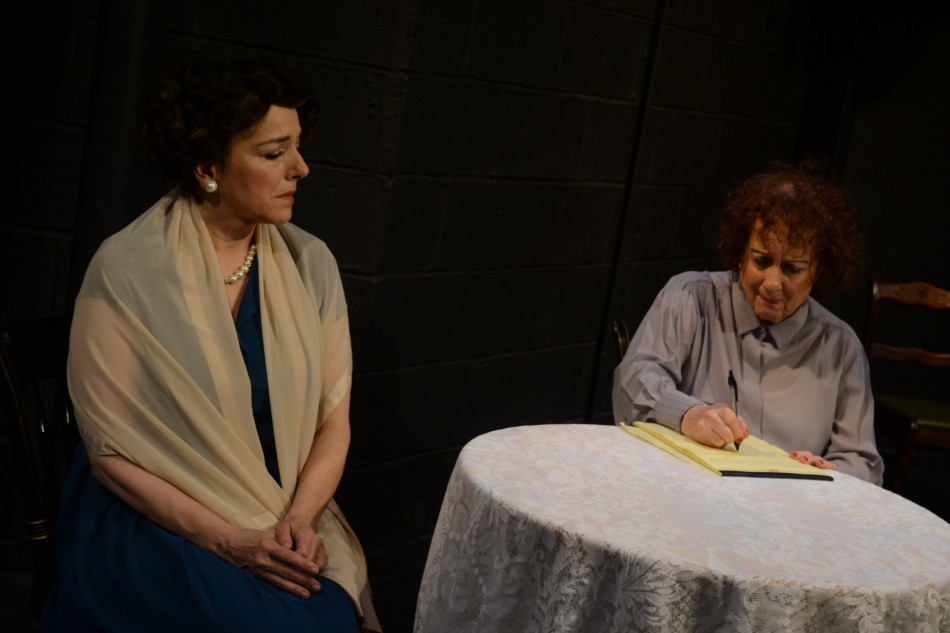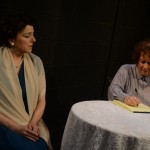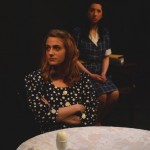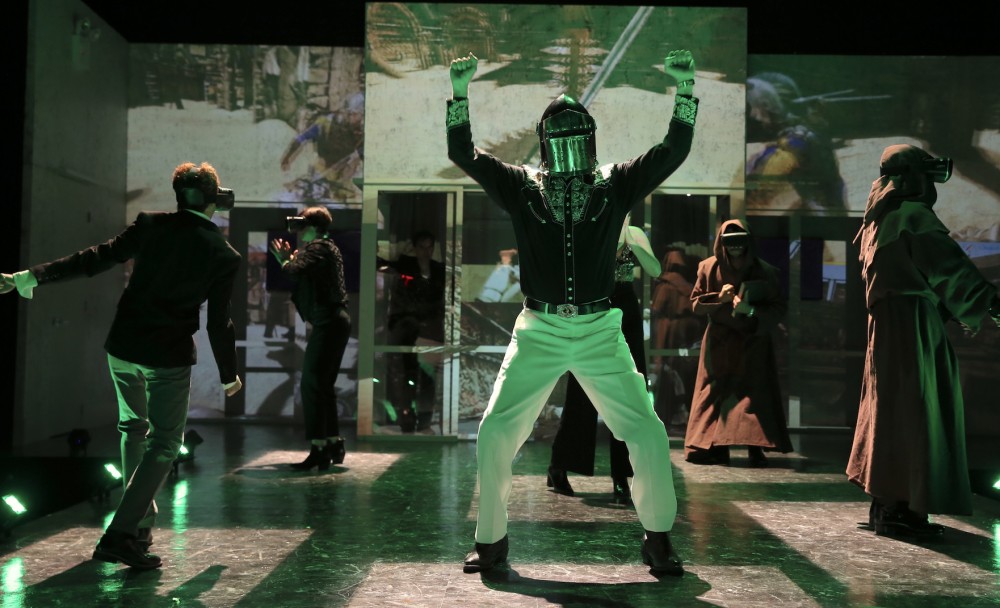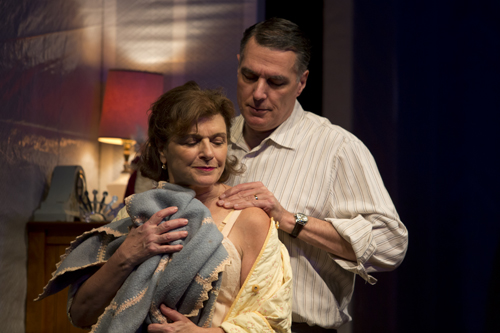by Myra Chanin
Don’t believe lightning doesn’t strike twice. I was struck by theatrical lightning, two times during the same week and at the same location by the boundless emotional intelligence and infinite talent of the same 28 year old young playwright — Steven Carl McCasland – a pleasant, polite, calm, Long Island native who dramatically and passionately reconstructs 20th Century history in his dramas. Five of the eight plays he’s written during his years on this planet are being performed during the month of May by an unbelievably skilled repertory company at the Clarion Theater. The first one I saw was Little Wars, about a New Jersey psychoanalyst who helped more than 300 Jews escape from Hitler’s clutches and whose exploits were co-opted by playwright Lillian Hellman in her Pentimento memoir for her own self-glorification. You’ll find my observations; i.e., raves, about Little Wars in https://www.theaterpizzazz.com/steven-carl-mccasland-where-have-you-been-all-my-life/
I’ve just seen my second McCasland play in this series and it’s equally compelling. It’s entitled 28 Marchant Avenue, which was the Hyannisport, MA address of the large, oceanfront summer cottage rented, then purchased, and remodeled in the 1920’s by Ambassador Joseph P. Kennedy as a vacation retreat for his wife and family. It might be a great place to visit, but it wasn’t a great place to live if you were Joe’s oldest daughter, the very pretty Rosie, born with intellectual and emotional disabilities and who, by age 18, had not advanced beyond the fourth grade. Rosie was also prone to rages and roaming outside in the middle of the night to meet boys, convincing her father that she would get pregnant and disgrace the family.
The events taking place in 28 Marchant Avenue occur during the pre-WWII summer when Rose Kennedy, her three daughters Eunice, ”Kick” and Pat, and her son John/JFK, who was particularly devoted to Rosemary, clashed with their father about his solutions to the Rosie problem, forcing Joe to secretly arrange, against the wishes of everyone in the family, for Rosie to undergo a new neurosurgical procedure at age 23 which Joe had been told would calm Rosie’s mood swings and her occasional violent outbursts.
The procedure, called a lobotomy, involved using a mild tranquilizer, so the patient was awake, with the surgeon making a small surgical 1” incision through the skull into the brain, which feels no pain, then moving an instrument like a butter knife, up and down to cut through brain tissue while asking Rosie to recite The Lord’s Prayer or sing God Bless America, stopping only when Rosie became incoherent. Something “went terribly wrong” and Rosie, left with the motor and speaking skills of a two year old, spent the next six decades cared for by nuns in a Wisconsin Catholic institution until she died there at age 86.
McCasland’s view of the Kennedy Household may not be totally factual, but feels absolutely emotionally spot-on. He has obviously done his research. This is the “Camelot” JFK grew up in, before his widow and her minions cynically bestowed that tag on their White House stay.
What’s particularly special about 24 Marchant Avenue? McCasland not only wrote this play, but masterfully directed it, and makes every nuance clear as can be. You feel like you’re on Cape Cod thanks to a perfectly simple set — a white table, a few white chairs — and the beautiful, appropriately stylish costumes designed by Somie Pak. The entire cast is wonderful. Rosie Kennedy, as played by Kristen Gehling is a star in the making. She irritates you but tears your heart out. Dorothy Weems as Mother Rose is also unique, projecting and hiding her pain amid the pretense that everything is fine. Laurie Sammeth’s Luella Hennessey is the third spoke of this exceptional acting triangle as the family retainer who is everyone’s confident and rightly so. She cleans, she cooks, she serves, she gives smart advice and she’s happy about having a job. Sigh! I don’t believe housekeepers like this exist even in anyone’s imagination anymore.
You have six more days to see some or all of the plays in this McCasland cycle.
If you miss them, not to worry. He’ll be back!
ClarionTheatre.org 309 E 26th St, New York, NY 10010 (212) 684-2690
*Photos: Beautiful Soup Theater Collective


